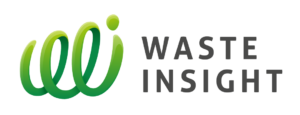Waste Insight research team
Waste Insight is a research team of SC-Research at the University of Vaasa. We work together with our project partners in order to reduce food waste in the food chain. Our work is based on a systematic development process and continuous improvement.
Projects:
NextGen - Future food waste reducing buffet dining

NextGen produces new solutions tailored to Horeca industry that contribute to reducing food waste through new technologies and sociocultural change.
The project aims to:
1) Develop, pilot and demonstrate a digital forecasting model for food waste management tailored to the Horeca sector,
2) Produce new operating models and methods that, in particular, promote sociocultural change in order to reduce food waste, and
3) Design and demonstrate an operating model that enables large-scale utilization of the opportunities offered by the VME center of excellence (University of Vaasa) as part of the development of new food waste solutions.
The development work is divided into four work packages, which will be implemented by the Waste Insight research team of the University of Vaasa.
Contact: Juha Vänskä, University of Vaasa
Duration: April 2023 – March 2025
Budget: 320 363 €
PAJATSO

Business ecosystem for food waste (PAJATSO) promotes the reduction of losses through new technology and sociocultural
change. More precisely, the project
1) promotes food waste measurement automation by developing digital forecasting model for food waste management, based on the work and model created in previous Wasteless project.
2) builds a methodology bank for reducing food waste
3) promotes dissemination mechanisms for food waste solutions
Business ecosystem for food waste project PAJATSO is carried out in collaboration with the Natural Resources Institute Finland Luke and the City of Lapua. It is financed by European Union – the European Regional Development Fund and the Regional Council of Southern Ostrobothnia.
Contact: Juha Vänskä, University of Vaasa
Duration: August 2021 – December 2022
Budget: 290 000 €
Wasteless Food Services in Finland

The aim of the project was to improve the efficiency of monitoring food waste in large public kitchens and food service centers as well as to reduce waste through recipe and digital metering. The aim was to improve the utilization of the generated food waste. The aim was also to develop an order-delivery process, which can, for example, affect the amount of food to be ordered and the amount of food waste in hospitals and elderly services. The goal was to reduce the total waste rate by 20% – which was well exceeded as food waste in Lapua secondary school was reduced by 44%.
Wasteless Food Services in Finland was carried out in collaboration with Seinäjoki University of Applied Sciences (project leader) and the City of Lapua. It was financed by European Union – the European Regional Development Fund and the Regional Council of Southern Ostrobothnia.
Contact: Juha Vänskä, University of Vaasa
Duration: March 2019 – July 2021
Budget: 469 824 €
ECOWASTE4FOOD
Supporting eco-innovation to reduce food waste and promote a better resource efficient economy
The ECOWASTE4FOOD project brought together seven local and regional authorities from seven countries throughout Europe. The aim was to search for and identify models in Europe that could reduce food waste in food production processes and at different stages of consumption through eco-innovation.
The Waste Insight research team took part in the regional stakeholder work, organized by the Regional Council of South Ostrobothnia. The project was financed by Interreg Europe.
More information on the project webpage.
Contact: Juha Vänskä, University of Vaasa

